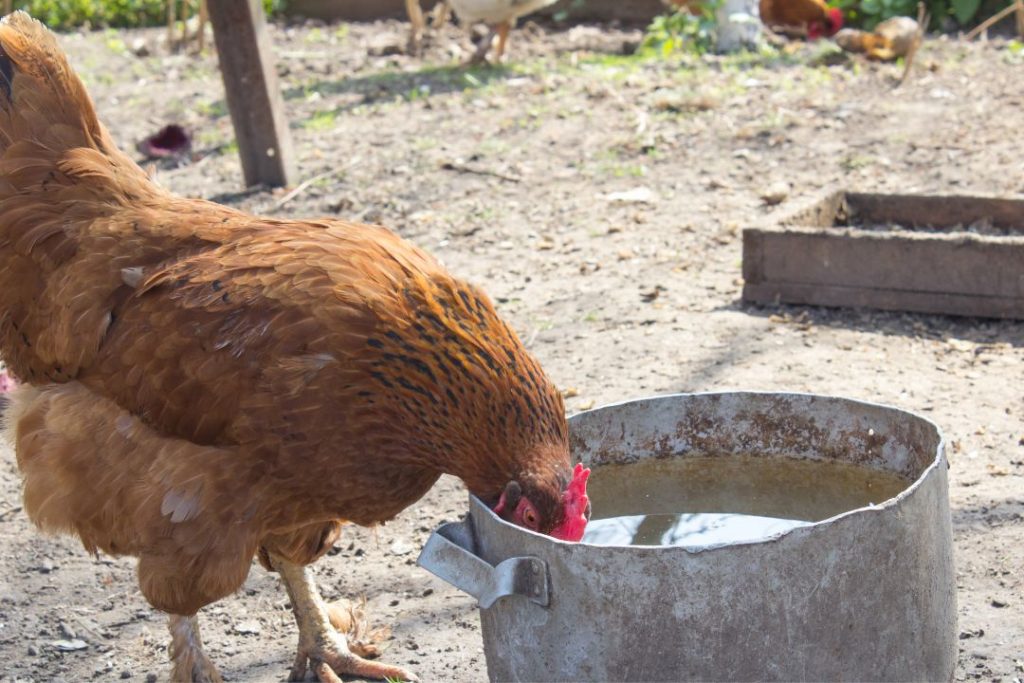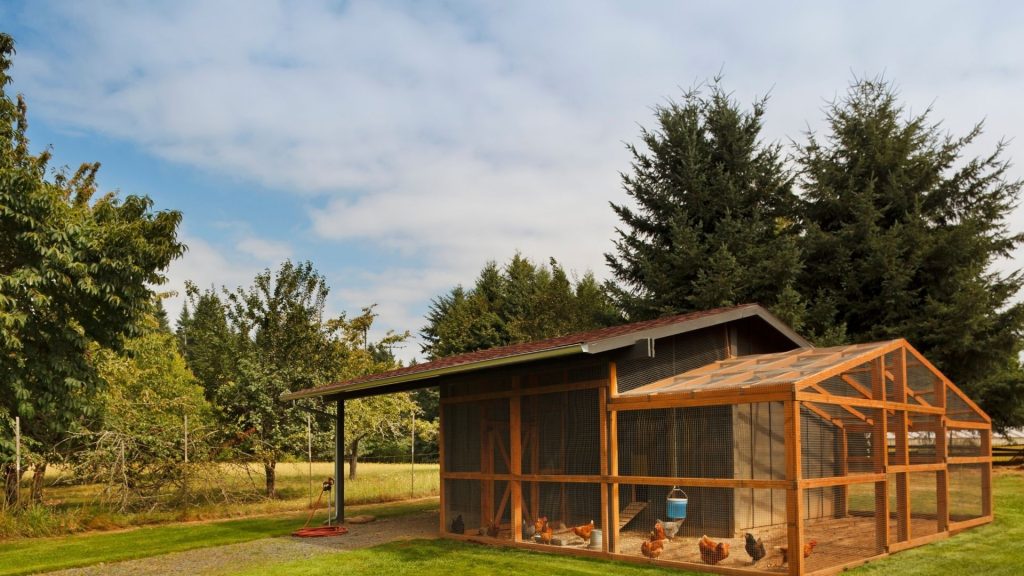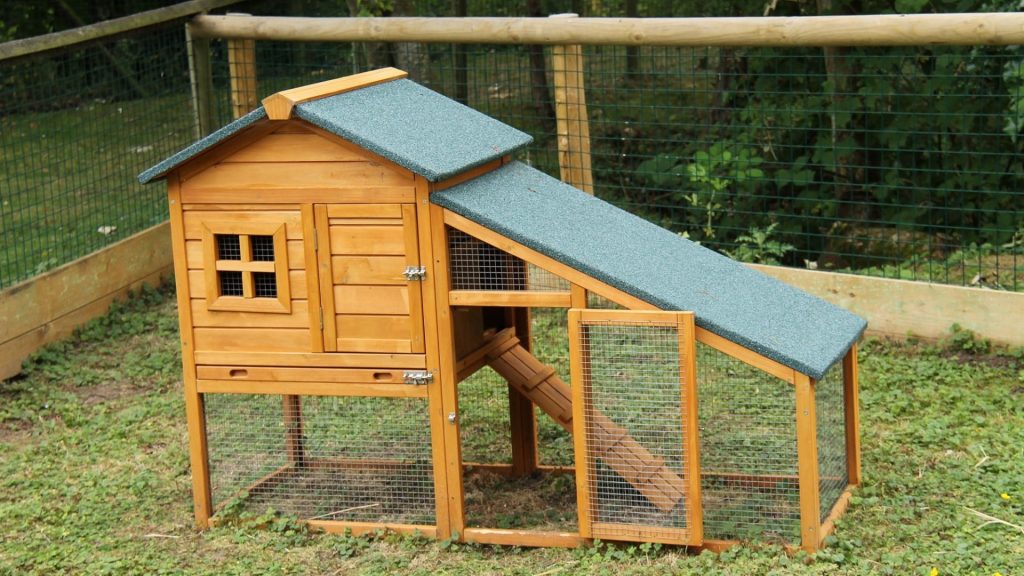When rearing chicken, the essential thing for their perfect growth is to ensure clean drinking water for them. Chickens have the habit of soiling their water. Ultimately by making the water dirty, they drink it and suffer from health problems.
Your chicken can suffer from several health diseases without clean drinking water access. Therefore you must know what to put in chicken water to prevent algae. To prevent the formation of green algae, you should avoid putting Waterer in direct sunlight.
Also, to prevent algae, put a tablespoon of vinegar in each gallon of drinking water. Naturally, vinegar lowers the water’s pH level and prevents the reoccurring of slime.
This guide will explain all possible ways to prevent algae in your chicken’s drinking water. So, keep reading!
Why Do Algae Grow In Water?
When the green stuff floats in your chicken’s water container or water bowl, it’s called algae. Water turns green due to algae in it. Algae is a plant it grows in water when the water gets dirty. Algae require food, light, and non-moving or slow water to grow.
The ideal environment for algae growth is drinking water in a bucket or bowl. Moreover, due to the warmer weather, algae grow in the water. Warmer weather means algae will grow fastly in it. If there is dust, saliva and bits of food in the water container, then the green stuff will float around your bird’s fresh drinking water.
Quickly the algae grow in ideal conditions. And the clean drinking water in the big bowl will prevent the growth of green floating algae plants.
What To Put In Chicken Water To Prevent Algae?
The simple answer is to put a tablespoon of vinegar in drinking water each gallon to prevent the algae in the water. Naturally, vinegar lowers the water’s pH level. But this simple step is insufficient to clean your chicken’s drinking water.
However, you must also follow the tips below to prevent the formation of algae in the water.
- Minimize the formation of algae by avoiding putting the Waterer of chicken in direct sunlight.
- Regularly clean the water container and frequently refill it
How To Prevent Algae In Chicken’s Drinking Water?
Already we have explained two practical tips to prevent algae in the drinking water of your chicken. Fortunately, there are also some other ways following which you can avoid the formation of algae in the water. And those ways are:
1. Keep The Waterer In A Cool Place
To prevent algae growth in water, you must keep the Waterer in a cool place, out of direct sunlight. If you are bound to place the water container in direct sunlight, you must cover its top. Also, you can keep the sunlight out using a dark container.
The tree shade can help to fulfil this purpose well. Or at the day’s hottest time, even a partial shade will serve this purpose well.
2. Add Bleach Or Apple Cider Vinegar To The Water
Apple cider vinegar in one or two drops or adding bleach to the water will significantly help to prevent algae growth. If you don’t change the water daily, then this method will benefit you.
While adding vinegar or bleach, ensure you are not mixing poison in water by adding these elements in excessive amounts. Instead, follow the package’s instructions and use the correct solution in a particular amount.
One important note is this method is not suitable for those who want to raise their chicken organically. If you prefer an organic manner, then stay away from bleach. Instead, we recommend you use apple cider vinegar to add acidity in a small amount to the water.
If you don’t have apple cider vinegar, you can use bleach in small amounts. In a 5-gallon bucket, add the apple cider vinegar of ¼ cup and mix it well. Also, some experts recommend using ACV with 1 – 2 tablespoons per gallon of water.
For the metallic watering system, ACV is not recommended. Vinegar or bleach is not best for metallic watering because it can corrode metal.
3. Keep The Flock & Its Poop Out of Water
To prevent the water from being green and keep the water clean, you must keep your chicken, especially chicks, out of the water. To keep your hens out of the water pot, you can take the following actions:
- Raise the watering system or bucket in your coop to discourage the impromptu bath of your chicken. Also, raising the bucket above will prevent accidental pooping of your chicken in the water.
- Use watering nipples, but before that, cover the water. Protecting the water will prevent your chick’s accidental bath. As a result, the water will remain clean as the sources of contamination are closed.
4. Regularly Scrub the Container
After emptying the old water each time, we recommend scrubbing down the Container. Using a soapy solution, mild solvent, and scrubbing brush, you can scrub down it. After cleaning the Container, refill it with fresh water.
The mild solvent means one or two drops of dishwashing liquid from your kitchen. The mild solvent will kill off the algae spores in your chicken container. So, wash out saliva and old debris from the water container.
5. Keep Your Chicken’s Drinking Water Out of Your Coop
If you cannot raise the water container and keep it on the floor, your chicken will mess with it. And they will also scratch around the water container and even poop in the water.
So first off, try to ensure the water container is at your chicken’s chest height. And secure it also tightly so that your chicken can’t poop in it or make it dirty. But if you cannot do that, we recommend you keep the water pot out of your chicken coop.
At the covered run of your chicken, you can keep the Waterer. But keeping the Waterer outside ensures it’s easier to access and refill. However, if you have a covered water container with drinking nipples, you can keep it inside your coop.
Also Read: Can Chickens Be Left Alone For A Week?
6. Regularly Refill the Water
To keep the water clean, we recommend you refill it every day. During the hot summer, you must refill the water container more often. Filling water regularly in the Container will prevent algae growth, and the water won’t turn green.
Regularly refilling the water will ensure a balance between efficiency, accessibility, health, and safety. During the colder winter, you can change the water less frequently or once a month. Algae can grow in too cold weather or water. Therefore in winter, refilling the bucket once every few days is enough.
To know more about this, you can watch this video.
Can My Chicken Drink Algae Water?
Many backyard chicken coop owners often ask that their chicken can drink the nasty, green, or algae water. The answer is that compared to a human, the tolerance level of chickens to unclean water is higher. But still, green or algae water is an unhealthy choice for your chicken.
If your chicken drinks the algae water, it can lead to diseases and infections in your chickens. The water contains algae and is the haven for different types of bacteria. Also, the algae in excessive water amounts are unsuitable for your chicken’s health.
Against the small number of algae, your chicken can build resistance. But if they drink this dirty or green water too often, they can expose to different diseases. Excessive algae create respiratory problems and can cause your chicken’s sudden death.
So to keep your chicken disease free and healthy, ensure there are no algae in the water they drink. And frequently, keep changing the drinking water of your chicken every one or two days.
How To Keep The Water Container Clean To Prevent Algae?
Every day cleaning the water container is quite challenging. Daily cleaning and scrubbing are necessary, but it’s impossible to do often. Therefore, you can follow the tips below to keep the Container clean for a longer time
- Have More Containers: We recommend you use more than one Container to keep the water clean. Set more than one Container at different locations around the coop.
Also, place the Container in such a way that the chicken can quickly drink the water. Make sure your birds remain hydrated. Using too many containers will lower the water spillage.
- Use Proper Drinkers: We recommend you hang the Container up to the chicken’s height. Or you can place the Waterer on a stand also. Setting the water container properly will prevent the falling of dirt or debris into the water.
- Don’t Use Open Containers: Birds will likely mess in open containers, which means water will become dirty frequently. So, avoid using empty containers. Otherwise, you will have to clean them more often.
EASY Way to Clean Your CHICKEN Waterer
Conclusion
Hopefully, after going through the above article, you will get the answer to your question of what to put in chicken water to prevent algae. The simple answer is to control algae growth in the water; you can put vinegar or bleach in it.
And most importantly, make sure that you have kept your birds’ drinking water out of direct sunlight. Algae love sunny, stagnant water. So don’t keep the water in a bright environment to encourage the growth of algae.



